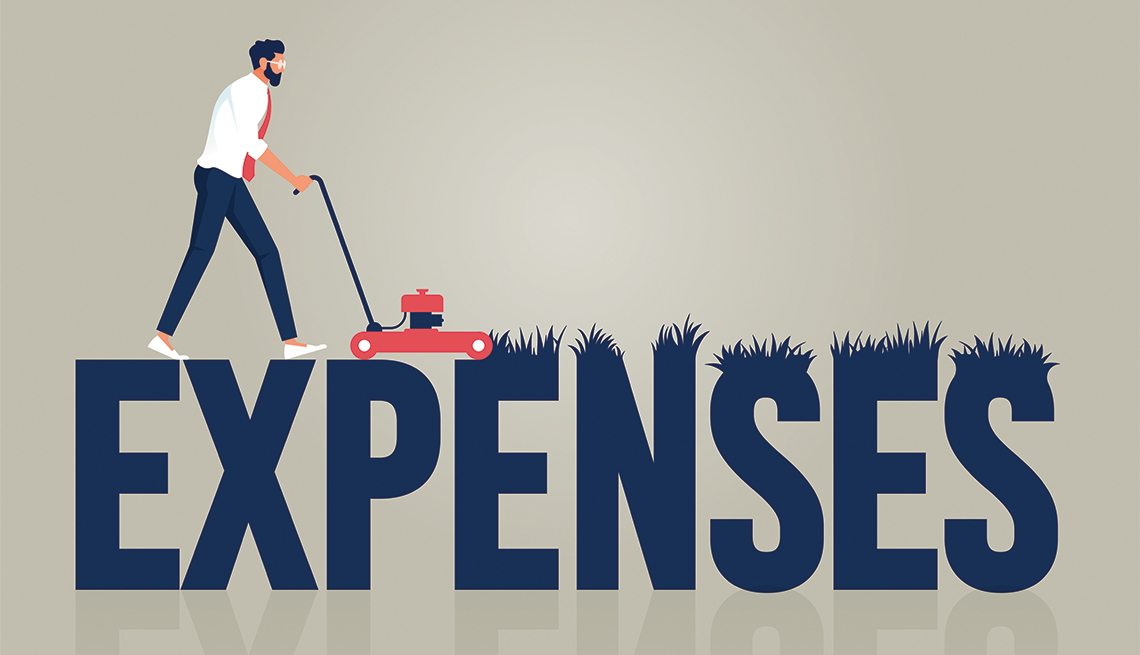
- Select a language for the TTS:
- UK English Female
- UK English Male
- US English Female
- US English Male
- Australian Female
- Australian Male
- Language selected: (auto detect) - EN
Play all audios:
6. CURB CELLPHONE AND CABLE COSTS Check to see if you’re overpaying for cellphone and cable service. “Plan prices are very competitive these days and companies rarely alert their customers
to better deals among their plans,” says George Gagliardi, a CFP at Coromandel Wealth Management, in Lexington, Massachusetts. Mint Mobile, T-Mobile and Consumer Cellular are among the
possibilities. “Providers tend to use the same three networks — AT&T, Sprint and Verizon — and their coverage is nearly the same,” he notes. Premium cable is another expense that can get
out of hand, says Ryan Eyerman, a CFP at CKE Financial Services in Westlake, Ohio. “See if there are channels that you don’t watch anymore, and if there’s a less expensive option.” You
should shop also around for internet service, he says. “If you find a good price, see if your current company will match it.” 7. INVESTIGATE YOUR INSURANCE Save by eliminating duplicate or
unnecessary insurance coverage, says Bunio. “My parents had dental coverage plus a Medicare Part C plan that covered dental. We saved them $150 per month by dropping the separate coverage.”
You might increase your deductibles on your auto and homeowners policies to lower your premiums. Eyerman says. “Before doing this, make sure to consult with a financial adviser who can
verify if it is a good option for you,” Eyerman says. It may be a good way to save money, provided you have an adequate emergency fund to cover the higher deductibles, should you have an
incident. Sometimes, you can change vendors and pay less, says Waltzer. Or, a slight change in benefits can reduce your premium costs without meaningfully affecting coverage. 8. CONSIDER
CREDIT CARD AND BANKING COSTS The same can be said for credit card interest rates, and banking fees. “A balance transfer to a less expensive credit card, perhaps one with an introductory
interest rate of zero percent, might be a worthy endeavor,” says Mark Charnet, a certified financial fiduciary at American Prosperity Group in Pompton Plains, New Jersey. You might also save
on fees by changing banks. 9. TIME YOUR TRAVEL So, you’ve postponed a trip, time after time, due to the pandemic. Chances are you can book it, and stay within your budget, if you’re
flexible, says Sarah Gerber, a CFP at Momentum Financial Planning LLC in Arvada, Colorado. “Traveling during off-peak times or changing your trip by a few days or even a few hours, can make
a difference,” she says. Also, use credit card or airline points for airfare and hotels, even meals, says Lamar Brabham, a wealth management specialist at the Noel Taylor Agency in North
Myrtle Beach, South Carolina. 10. TEMPER YOUR TAXES. Finally, increase your annual 401(k) contributions, if you can. That will beef up your retirement portfolio and may cut your tax bill,
says Gagliardi. “If you are at the 12 percent marginal rate, for example, putting in an additional $834 will cut your tax bill by $100. At the 22 percent marginal bracket, a $455 increase in
your 401(k) will net that same $100 reduction in taxes.”






